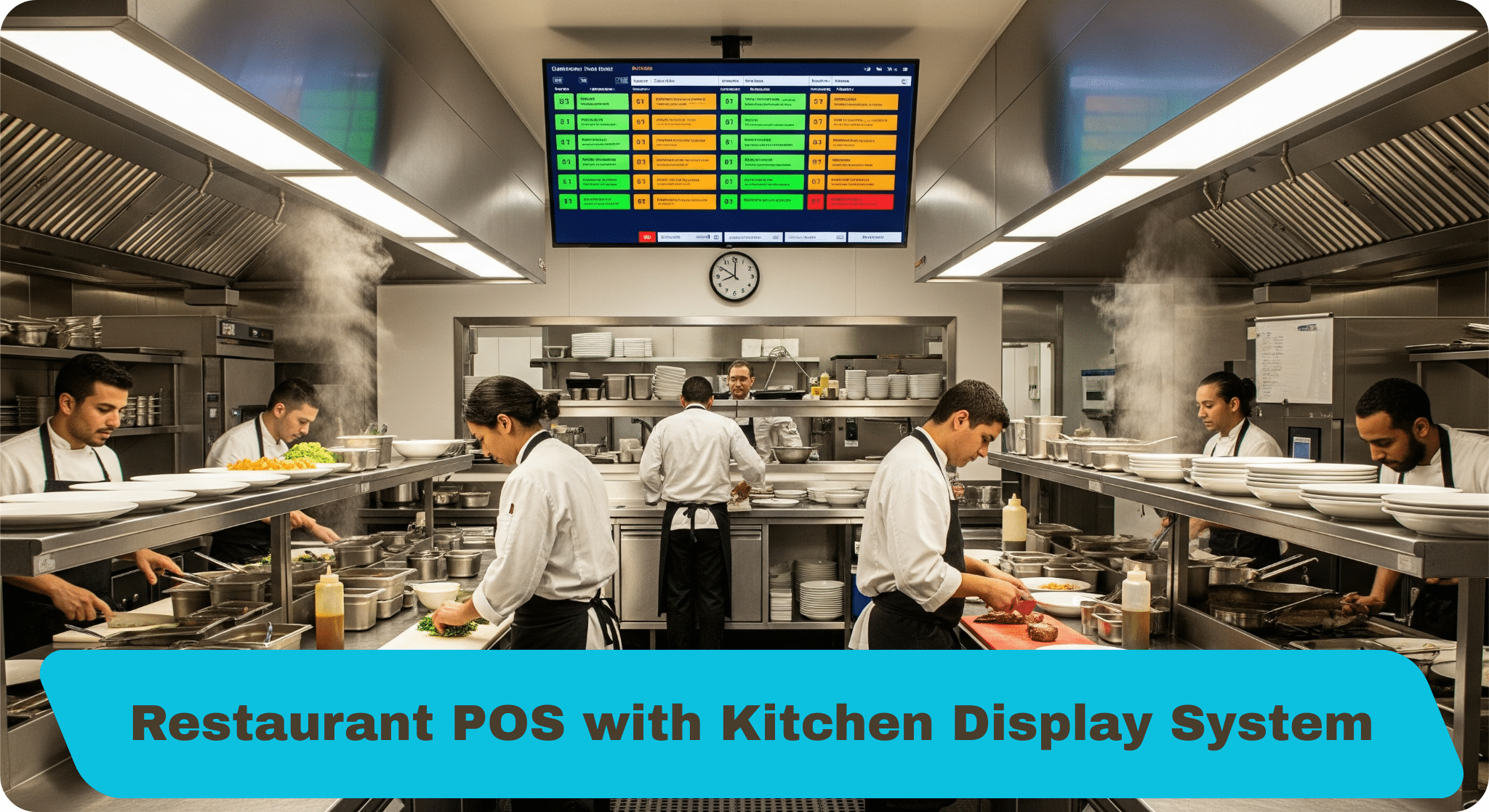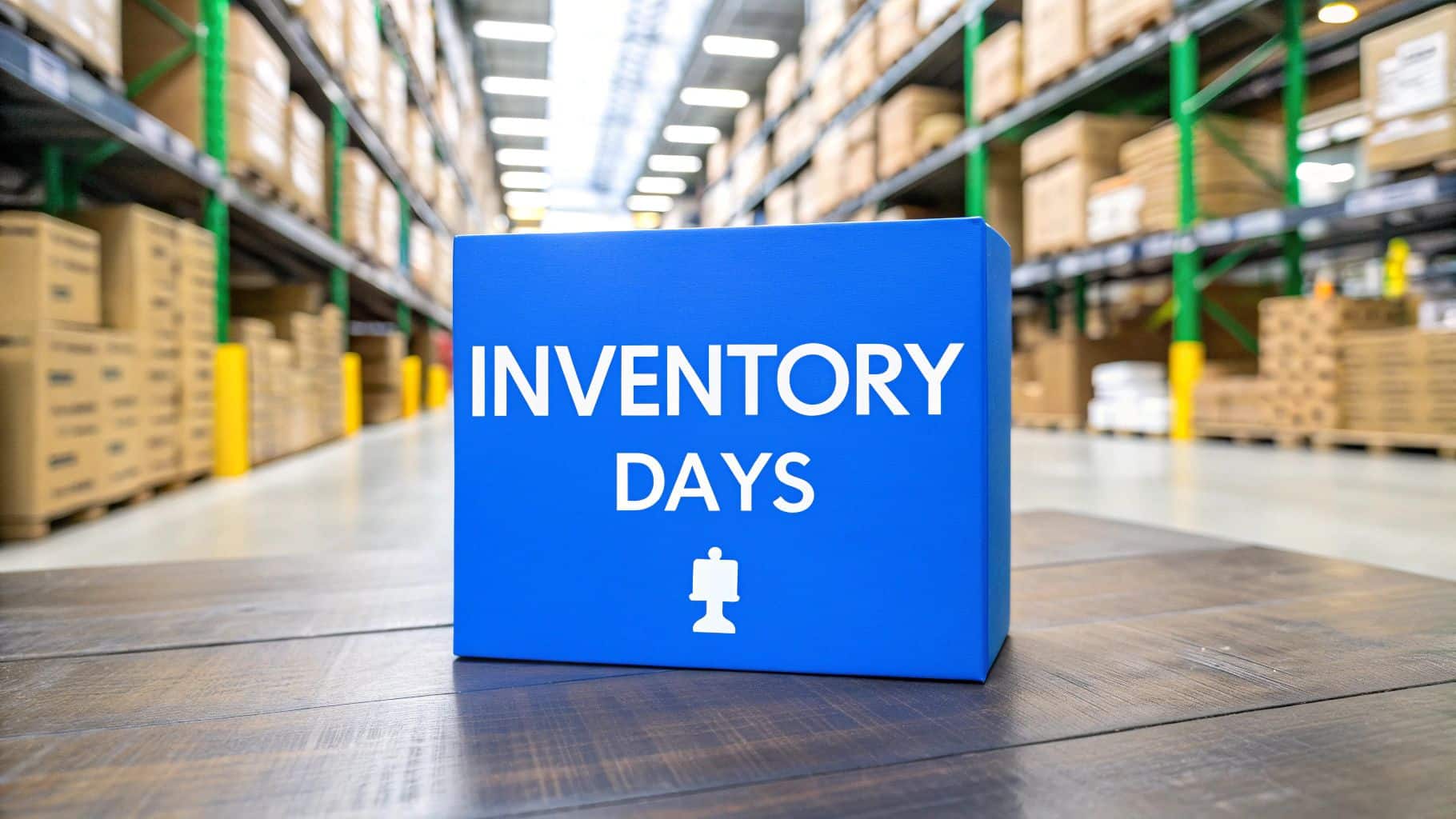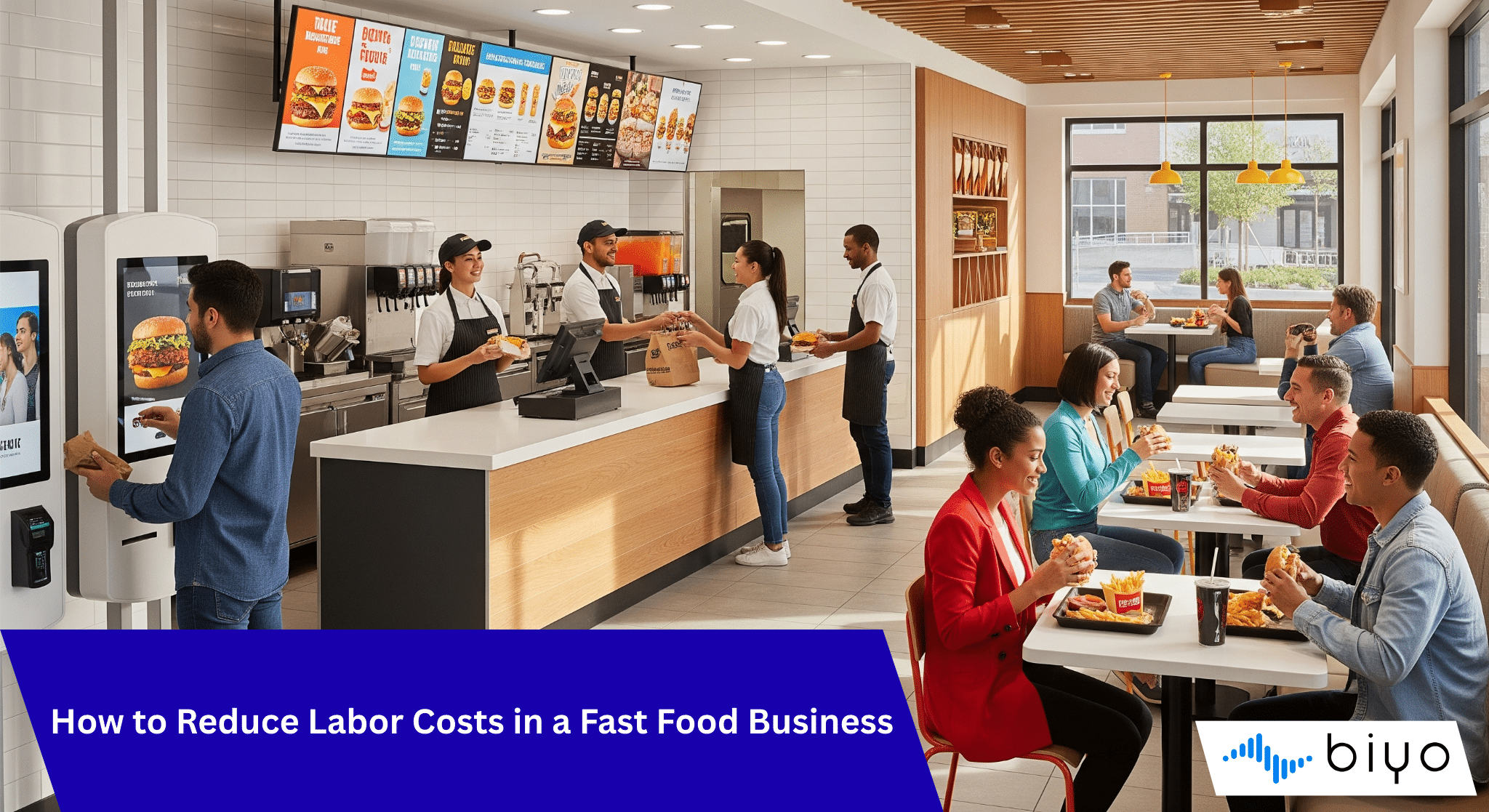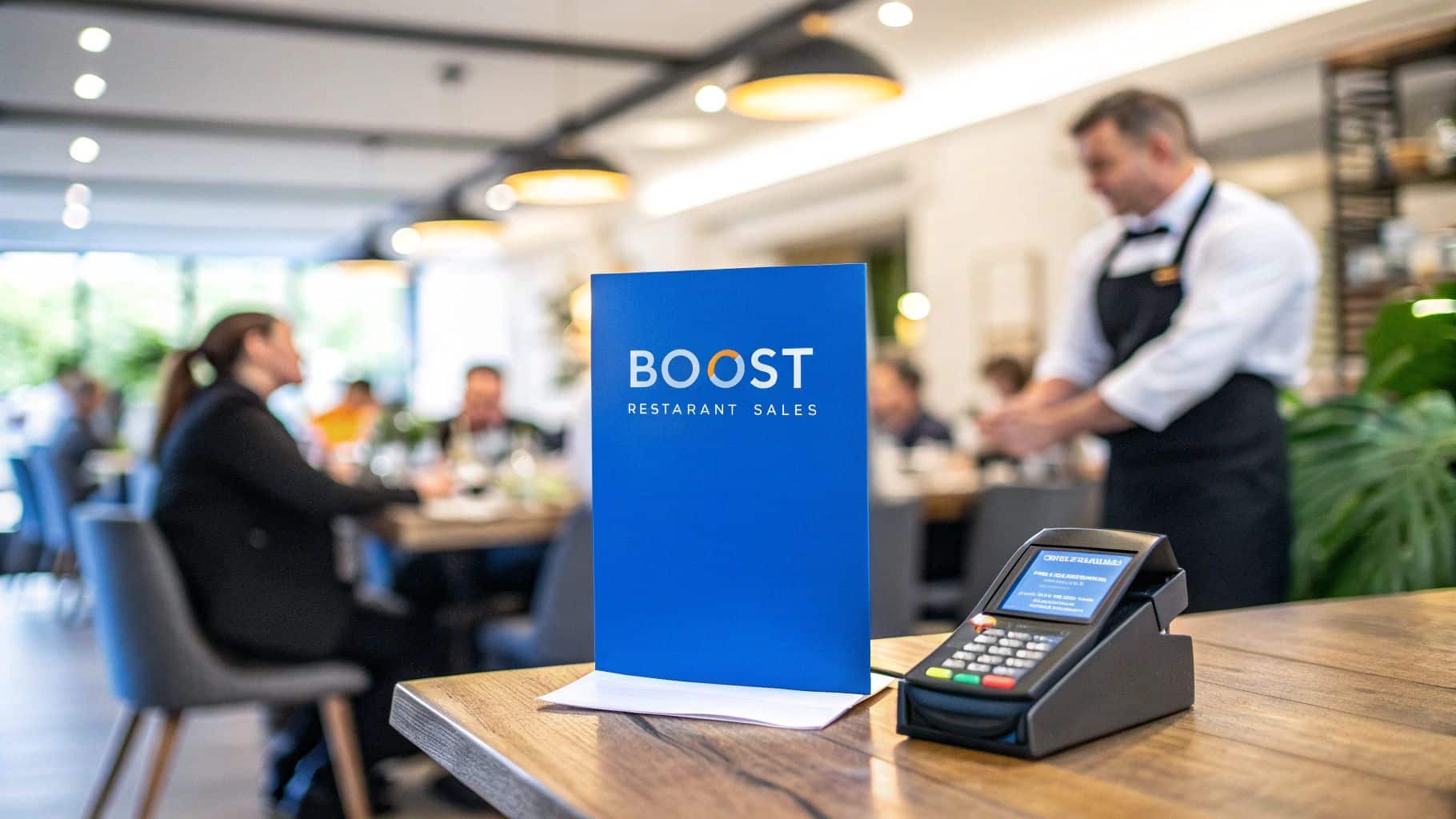In today’s competitive foodservice market, an AI Voice Phone Assistant for Deli Stores is no longer a futuristic concept. It’s a powerful business tool that can dramatically improve how deli owners interact with customers. These assistants combine advanced technologies like automated ordering, voice recognition, and natural language processing. This provides a seamless, error-free, and personalized ordering experience. In a world where speed, convenience, and accuracy are top priorities, deli owners can no longer rely solely on traditional phone ordering methods. These methods often leave customers waiting or lead to mistakes during busy hours.
The beauty of an AI-powered assistant is its ability to take calls instantly. It can understand complex customer requests and process them directly into your point-of-sale system without human intervention. Imagine a customer calling during the lunchtime rush when staff are already busy juggling in-store orders and food prep. Rather than putting the caller on hold, the AI answers immediately, takes the order accurately, and provides an estimated pickup time. This creates a smoother experience for the customer. It also frees up valuable staff time for in-person service.
As consumer expectations for fast and personalized service rise, delis that embrace this technology gain a clear advantage over competitors. The AI assistant processes orders and offers upselling suggestions. It also manages inventory-linked ordering and can even handle payments over the phone. This isn’t just automation. It’s a strategic upgrade for how deli businesses operate and connect with their communities.
Table of Contents
- Seamless Ordering Experience with AI
- Streamlining Deli Store Operations
- Boosting Sales and Customer Loyalty
- Integrating AI with POS and Other Systems
- Why AI Voice Phone Assistants are the Future for Delis
Seamless Ordering Experience with AI
The cornerstone of a AI Voice Phone Assistant for Deli Stores is its ability to simplify and enhance the ordering process for both customers and staff. By removing the bottlenecks of manual phone answering, AI technology ensures every caller is greeted immediately, heard clearly, and provided with an efficient way to place an order. This not only increases customer satisfaction but also reduces the likelihood of lost sales from missed calls. In a deli environment where peak hours can get chaotic, this system becomes a critical asset for operational flow.
Automated Ordering with Voice Recognition
Automated ordering powered by advanced voice recognition transforms a standard phone call into an intelligent, interactive session. When a customer calls in, the AI assistant uses sophisticated algorithms to recognize speech patterns, even in noisy backgrounds. For example, during a lunch rush when kitchen noise is at its peak, the system can still accurately capture “one pastrami on rye, extra pickles, no mayo” without asking for repetitions. This technology reduces the margin for human error and speeds up the order-taking process significantly. In practice, this means fewer wrong orders, fewer returns, and a much smoother customer experience overall.
One key advantage of AI-driven voice recognition is its ability to handle diverse accents and speech speeds. Whether a caller speaks quickly or slowly, or has a regional accent, the assistant interprets the order correctly and confirms it back to the customer for clarity. This flexibility is essential for delis in multicultural communities, where clear communication can directly impact customer loyalty. In fact, many operators report a noticeable drop in misunderstandings and the associated costs when switching to AI-powered order taking.
Another operational benefit is the system’s ability to handle multiple calls simultaneously. Unlike a single staff member who can only serve one caller at a time, an AI assistant can process several orders in parallel. This means customers spend less time waiting and are less likely to hang up and call a competitor. Over time, this translates into higher order volumes, better customer retention, and increased revenue without additional labor costs.
Natural Language Processing for Menu Reading
Natural Language Processing (NLP) makes the AI Voice Phone Assistant feel more like a knowledgeable staff member, not a machine. NLP enables the assistant to understand not just a customer’s words, but also their intent. This is crucial for menu navigation. Customers often ask open-ended questions like “What’s your soup of the day?” or “Do you have any vegetarian options?” Instead of reading a static list, the assistant responds conversationally. It suggests items based on the query and even recommends pairings.
This interactive menu reading function helps customers make decisions faster. This is especially useful when they are unfamiliar with the deli’s offerings. For instance, if someone asks for “something light and healthy,” the AI might suggest a grilled chicken wrap or a quinoa salad. It explains the ingredients and offers to add a side of fresh fruit. The AI frames these suggestions in a friendly and informative tone. This boosts the likelihood of a sale and makes the customer feel valued.
Industry research shows that detailed, context-based recommendations can increase order sizes by 15–20%. The AI assistant can store data on popular items and seasonal specials. This ensures every customer hears about promotions and best-sellers during their call. Busy human staff find it difficult to replicate this consistent, targeted promotion during peak hours. This makes NLP-driven menu reading a major competitive advantage for delis.
Order Customization and Real-Time Confirmation
Customization is a core part of deli culture—customers expect to tweak their orders to suit their tastes. The AI Voice Phone Assistant excels here by capturing detailed customization requests without confusion. For example, a customer might say, “I’ll take the turkey club, but switch the bacon for avocado, no cheese, and add extra lettuce.” The AI logs every detail, repeats the order for confirmation, and sends it to the kitchen exactly as specified. This eliminates the all-too-common frustration of incorrect modifications, which can cost a deli both money and customer goodwill.
Real-time confirmation is critical for customer trust. After the assistant processes an order, it immediately provides an estimated preparation time and pickup window. This allows customers to plan their visit and reduces in-store congestion during busy periods. It also prevents the common issue of customers arriving before their food is ready, which can create negative experiences.
By integrating real-time confirmation with the deli’s POS system, the AI ensures the kitchen receives accurate tickets the moment the order is placed. This speeds up prep time, reduces stress on staff, and leads to more consistent order fulfillment. Over time, delis implementing such systems report improved efficiency, higher customer satisfaction scores, and a noticeable drop in order errors.
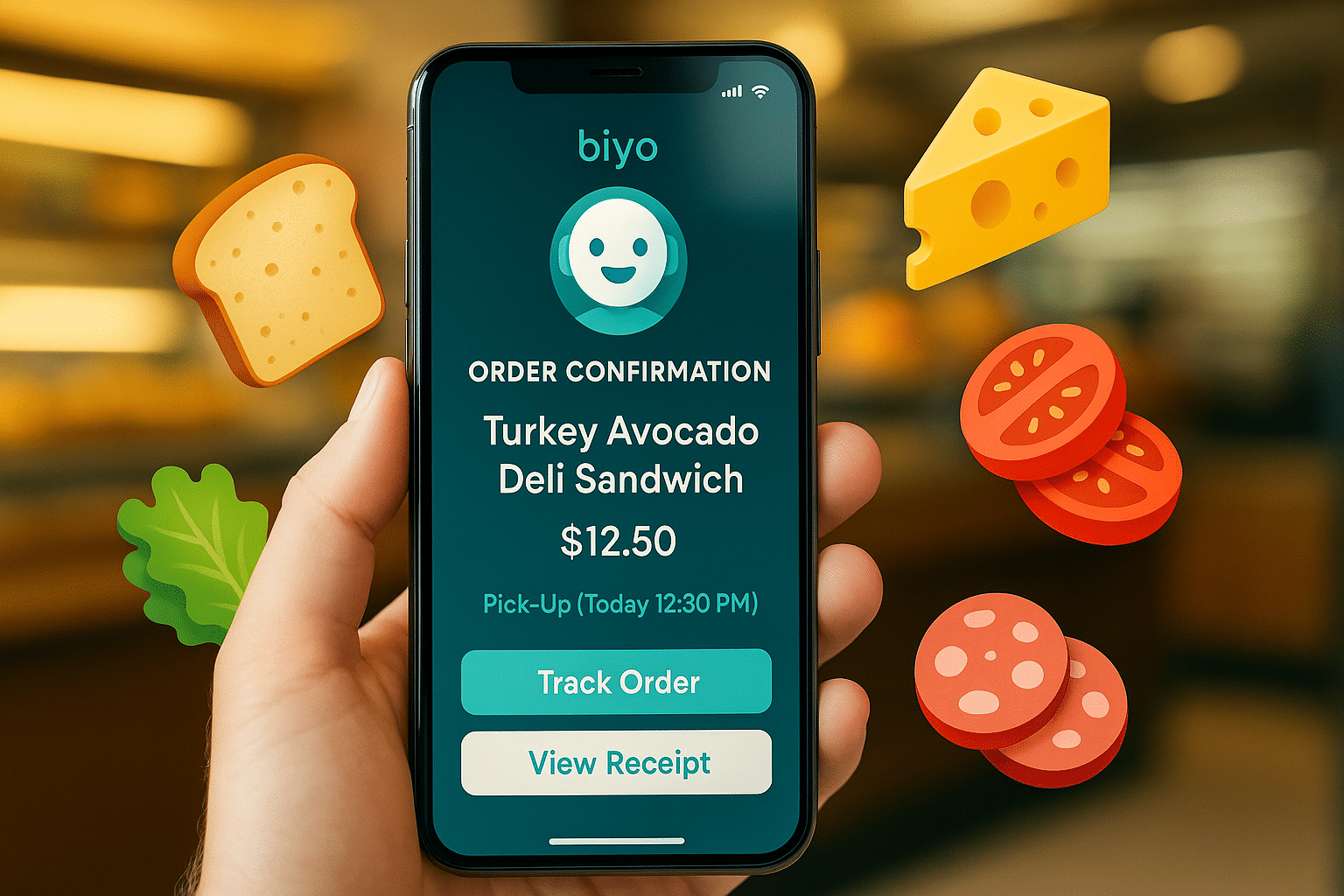
Streamlining Deli Store Operations
While customer-facing benefits often steal the spotlight, a AI Voice Phone Assistant for Deli Stores delivers just as much value behind the scenes. Delis are fast-paced environments where efficiency directly impacts profitability. The AI assistant acts as an extra, tireless team member—handling repetitive tasks, reducing bottlenecks, and keeping orders flowing smoothly from phone to kitchen. By taking on the phone workload, it frees staff to focus on food preparation, customer interaction, and other in-store priorities. This operational optimization not only boosts productivity but also reduces stress for employees, creating a better work environment overall.
AI Call Handling and Call Routing
One of the most powerful features of an AI assistant is its ability to handle multiple calls at once, something a single human staffer simply cannot do. During peak lunch hours, it’s common for phone lines to be busy or for customers to be put on hold—situations that can lead to missed orders and frustrated patrons. With AI call handling, every call is answered immediately, and no customer is ever left waiting in a queue. This constant availability creates a professional and responsive impression, reinforcing customer trust in the deli’s service.
Call routing adds another layer of efficiency. If a customer calls about catering, the AI can either handle the request directly or route it to the catering manager, bypassing unnecessary handoffs. Similarly, supplier calls or business inquiries can be directed to the appropriate department, ensuring that urgent matters are addressed without delay. This intelligent routing prevents operational disruptions and keeps the right people focused on the right tasks.
Over time, this streamlined communication process significantly improves order fulfillment rates and reduces abandoned calls. The result is not just better customer service, but also more opportunities to capture revenue that might otherwise be lost.
Inventory-Linked Ordering
Integrating the AI assistant with your deli’s inventory management system creates a smarter ordering process that adapts in real time. Imagine a scenario where the deli runs out of a particular bread type—without integration, customers might place orders for items that can’t be fulfilled, leading to disappointment and potentially canceled sales. With inventory-linked ordering, the AI assistant immediately knows what’s in stock and can suggest alternatives on the spot. For example, if rye bread is unavailable, it can offer whole wheat or sourdough instead, preventing lost orders and keeping the conversation moving.
Beyond preventing shortages from causing customer frustration, inventory integration enables proactive sales strategies. If the system detects an oversupply of a certain ingredient—say, extra roast beef—it can highlight menu items that use that ingredient, effectively helping manage stock levels and reduce waste. These targeted suggestions not only drive sales of surplus items but also encourage customers to try something new, possibly creating repeat orders for those dishes in the future.
For deli owners, this connection between AI and inventory results in a tighter, more profitable operation. Less waste means lower costs, while smart substitutions and promotions keep revenue flowing consistently, even when stock levels fluctuate.
24/7 Availability for Order Taking
Unlike human staff, the AI assistant never needs a break, vacation, or sleep. This means your deli can take orders around the clock, capturing business that would otherwise be missed outside normal operating hours. This feature is particularly valuable for catering orders, which customers often plan early in the morning, late at night, or even on weekends when the store might be closed. By allowing orders at any time, the AI ensures that no potential sale slips through the cracks.
For example, a corporate client planning a last-minute lunch for 20 employees can call at 10 p.m., place the order, and have it ready the next day without ever speaking to a human until pickup. The system logs the details, processes payment if enabled, and sends the order directly into the queue for preparation. This convenience makes the deli a go-to choice for customers who value flexibility and reliability.
Offering 24/7 ordering also provides a competitive edge in urban markets where other food options may be limited during off-hours. Over time, this availability can help build a reputation as the “always there” deli, attracting loyal customers who know they can count on your service at any time of day or night.
Boosting Sales and Customer Loyalty
A well-implemented AI Voice Phone Assistant for Deli Stores doesn’t just save time—it actively drives revenue. Through upselling, cross-selling, personalization, and inclusive communication, it helps delis maximize the value of every customer interaction. By remembering preferences and making thoughtful suggestions, the assistant creates experiences that make customers want to return again and again. This combination of sales growth and loyalty building is a key reason why more foodservice businesses are investing in AI technology.
Upselling and Cross-Selling Suggestions
Upselling and cross-selling are time-tested retail strategies, but in a busy deli, staff often don’t have the time to consistently make these suggestions. An AI assistant, however, never forgets. Using customer order history and menu data, it can automatically suggest relevant add-ons. If a customer orders a turkey sandwich, the assistant might recommend adding a soup for a combo deal or upgrading to a premium bread for a small additional cost. These offers are made conversationally, so they feel like helpful tips rather than aggressive sales tactics.
The effectiveness of this approach is supported by data—restaurants and cafes that implement systematic upselling techniques see revenue increases of up to 30%. The AI can also be programmed to promote seasonal specials or high-margin items, ensuring that every call becomes a subtle marketing opportunity. Over time, customers come to appreciate these suggestions, especially when they discover new menu items they enjoy.
By automating upselling and cross-selling, delis can increase average ticket size without adding pressure to their staff, ensuring consistent and profitable interactions.
Multilingual Support for Diverse Communities
In many neighborhoods, delis serve a multicultural customer base with a variety of language needs. An AI assistant equipped with multilingual support can bridge communication gaps that might otherwise result in order errors or lost business. When a customer calls and is greeted in their preferred language, it immediately creates a welcoming atmosphere and shows that the deli values inclusivity.
This capability isn’t just about translation—it’s about cultural understanding. The AI can adapt menu descriptions and recommendations to align with cultural preferences, further enhancing the customer’s comfort and trust. For example, in areas with large Spanish-speaking populations, offering the full ordering process in Spanish can dramatically increase sales and loyalty among that demographic.
Multilingual support also reduces the workload for bilingual staff, freeing them to focus on in-store customers while the AI handles phone orders in multiple languages simultaneously.
Personalized Greetings and Repeat Customer Recognition
Personalization is a powerful driver of loyalty, and the AI Voice Phone Assistant takes it to a new level by recognizing repeat customers as soon as they call. Instead of a generic greeting, the assistant can say, “Hi Sarah, would you like your usual turkey club with extra pickles today?” This level of familiarity makes customers feel remembered and valued, much like being greeted by name at their favorite café.
Beyond greetings, the AI can use past order data to anticipate needs and offer tailored suggestions. If a customer often orders coffee with lunch, the assistant can ask if they’d like to add one before completing the order. This proactive approach saves customers time and makes ordering feel effortless.
Personalized experiences create emotional connections with customers, making them more likely to return and recommend your deli to others. Over time, these small touches can turn occasional visitors into loyal regulars who drive steady revenue.
Integrating AI with POS and Other Systems
To maximize the impact of a AI Voice Phone Assistant for Deli Stores, it’s essential to integrate it seamlessly with your existing business systems. When connected to your point-of-sale (POS), payment processing, and order tracking tools, the AI transforms from a simple call handler into a central hub for order management. This level of integration eliminates duplicate work, speeds up operations, and ensures that customer data is consistent across every sales channel. The result is a more efficient deli that delivers faster, more reliable service without adding complexity for staff.
POS Integration for Instant Order Processing
POS integration is one of the most valuable upgrades an AI assistant can offer. Without it, orders taken by phone still require manual entry into the POS system—a step that not only consumes time but also increases the risk of human error. With integration, the AI inputs the order directly into the POS in real time, meaning the kitchen receives the ticket instantly. This ensures consistent pricing, applies any active promotions automatically, and deducts items from inventory without delay.
Consider a busy lunch hour scenario: a customer calls in for a custom sandwich with several modifications. The AI takes the order, inputs it into the POS, and sends it to the kitchen printer or display system within seconds. Staff don’t need to transcribe the order or double-check prices—everything is already correct. This integration also means phone orders are tracked alongside in-store and online sales, giving owners a complete picture of daily performance in one place.
For deli owners, the benefits extend to reporting and analytics. Sales trends, customer preferences, and popular menu items can be analyzed more accurately, enabling better menu planning and inventory management. This creates a feedback loop that improves operations over time, further enhancing profitability.
Voice-Enabled Payments for Faster Transactions
Voice-enabled payments take convenience to the next level by allowing customers to pay for their orders during the phone call. This means that when they arrive for pickup, their food is ready and payment is already complete, eliminating delays at the counter. The AI uses secure encryption and verification processes to protect sensitive information, giving customers confidence that their transactions are safe.
This feature also reduces no-show orders. When customers prepay, they are more committed to picking up their food, which helps minimize waste and lost revenue. In addition, prepaid orders streamline kitchen operations because staff can prioritize them without waiting for payment at the register.
For example, a regular customer placing a daily lunch order could complete the entire transaction in under two minutes—from greeting to payment confirmation. This level of speed and convenience can be a key differentiator in competitive markets, where customers often choose the business that offers the easiest ordering experience.
Real-Time Updates and Order Tracking
Real-time updates are critical in managing customer expectations and reducing unnecessary phone inquiries. The AI assistant can inform customers of their estimated pickup time, notify them of any delays, and confirm when their order is ready. This proactive communication reassures customers that staff are handling their order promptly and professionally.
For tech-savvy customers, you can extend order tracking to SMS or app-based notifications. Imagine a customer placing a large catering order—through real-time updates, they receive status changes like “Your order is now being prepared” or “Your order is ready for pickup.” These updates reduce the likelihood of early arrivals, which can cause congestion, and late pickups, which can impact food quality.
In addition to enhancing customer satisfaction, real-time tracking provides valuable operational data. Deli owners can monitor preparation times, identify bottlenecks, and adjust staffing or processes to improve efficiency. Over time, this creates a smoother, more predictable workflow for both staff and customers.
Why AI Voice Phone Assistants are the Future for Delis
The adoption of an AI Voice Phone Assistant for Deli Stores is more than just a technological upgrade—it’s a strategic move to future-proof your business. As consumer behavior continues to shift toward speed, personalization, and convenience, delis that embrace AI will be better able to meet these demands. The technology is not only about handling calls; it’s about delivering a consistently high-quality experience that builds loyalty and drives growth. By acting now, deli owners can secure a competitive advantage that will be increasingly difficult for late adopters to match.
Meeting Modern Customer Expectations
Today’s customers expect service that is both fast and personalized. They are accustomed to digital assistants, instant messaging, and on-demand services in other areas of their lives, and they bring these expectations to food ordering. An AI Voice Phone Assistant meets these needs by providing immediate responses, remembering past orders, and offering tailored suggestions—all without requiring customers to wait on hold.
For example, a customer who regularly orders the same sandwich can have it ready with just a quick confirmation, while new customers can get menu guidance within seconds. This efficiency not only satisfies current expectations but also exceeds them, creating memorable interactions that encourage repeat visits. In competitive markets, delivering this level of service consistently can be the difference between gaining a loyal customer and losing one to a rival deli.
As more businesses adopt AI-driven customer service, those without it may struggle to keep pace. Offering an AI assistant positions your deli as forward-thinking and customer-focused, qualities that resonate strongly with modern consumers.
Reducing Operational Costs Without Compromising Quality
One of the most compelling business cases for AI is its ability to lower operational costs while maintaining, or even improving, service quality. By automating call handling, order taking, and payment processing, the AI reduces the need for dedicated phone staff during peak hours. This allows deli owners to reallocate labor to in-store service, food preparation, or other areas that directly enhance the customer experience.
Unlike temporary staffing solutions, AI offers consistent performance without the added costs of recruitment, training, and turnover. Over time, you can reinvest these savings into marketing, menu innovation, or facility improvements, which will further strengthen the deli’s market position. This is particularly beneficial for independent delis competing with larger chains that have greater resources.
Importantly, cost reduction does not come at the expense of quality. In fact, by removing repetitive tasks from staff workloads, AI enables employees to focus on providing exceptional service to in-store customers, which can lead to higher satisfaction and loyalty rates.
Future-Proofing Your Deli Business
Technology evolves rapidly, and businesses that fail to adapt risk falling behind. Implementing an AI Voice Phone Assistant now positions your deli to take advantage of future advancements in artificial intelligence, such as deeper personalization, integration with emerging delivery platforms, and predictive ordering based on customer habits.
For instance, as AI integrates with loyalty programs, your assistant could proactively alert customers to reward points they can use, or offer exclusive deals based on their purchase history. As delivery services become more AI-driven, your assistant could automatically coordinate with these platforms to expand your reach without adding operational strain. These capabilities will become increasingly standard in the foodservice industry, and early adopters will have the benefit of experience and customer familiarity with the technology.
Future-proofing isn’t just about keeping up—it’s about staying ahead. By building AI into your operations now, you create a foundation for continued innovation, making your deli more resilient to industry shifts and changing consumer trends.

About Biyo POS
Biyo POS provides cutting-edge point-of-sale solutions designed for modern foodservice businesses, including delis. With seamless integration of AI Voice Phone Assistant for Deli Stores, Biyo POS helps owners streamline operations, manage inventory, and increase sales. Our platform supports multilingual ordering, personalized customer interactions, real-time updates, and secure payment processing—all in one easy-to-use system.
We also offer BiyoAI, an advanced AI-powered voice assistant platform built to work hand-in-hand with your POS. BiyoAI handles incoming calls, takes orders, provides upselling suggestions, and ensures 99.9% of calls are answered—helping delis maximize efficiency and never miss a sale.
By partnering with Biyo POS, deli owners gain more than just technology—they gain a dedicated solution partner committed to helping them succeed with smart, integrated, and future-ready tools.
FAQ
How does an AI Voice Phone Assistant work for deli stores?
It uses voice recognition, natural language processing, and POS integration to take orders, answer questions, manage payments, and provide real-time updates over the phone.
Can it handle multiple languages?
Yes, multilingual support allows it to interact with customers in their preferred language, improving communication, inclusivity, and customer satisfaction.
Will it integrate with my existing POS system?
Most AI assistants, like those from Biyo POS, integrate seamlessly with popular POS systems for smooth and accurate operations.
Does it replace staff?
No, it complements staff by handling phone orders and repetitive tasks, allowing employees to focus on in-store service and food preparation.
Is it secure for payments?
Yes, voice-enabled payments use encryption and verification processes to ensure secure transactions and protect sensitive customer information.

